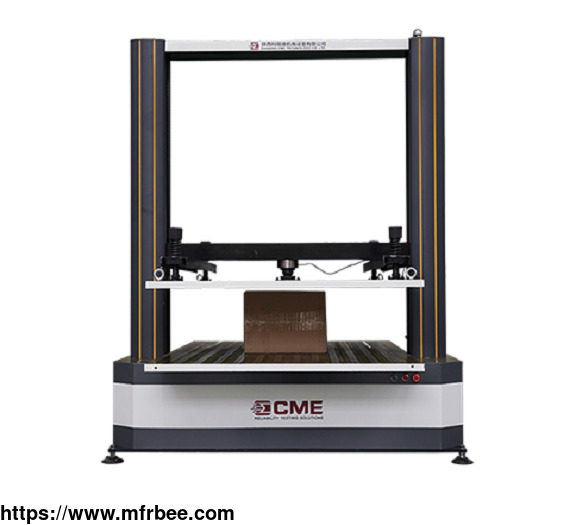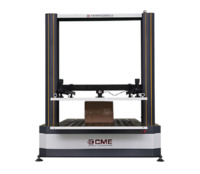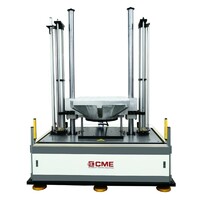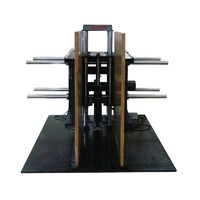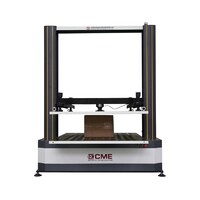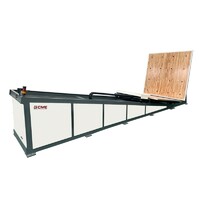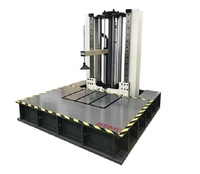Package Testing Equipment
Specifications
WHAT IS PACKAGE TESTING?
Packaging tests or packaging testing involves the test and measurement of a characteristic or property involved with packaging. This includes packaging materials and components, packaging shape,
shipping containers, and unit loads, as well as the associated processes and environments.
Packaging testing evaluates packaging suitability for product cushioning or support materials. Put the packaged product through a series of experiments to determine whether the packaging material
will protect the product from damage. Package testing can be performed on the individual boxes or entire shipping containers to measure unit loads and movement during shipping.
Packaging testing equipment CME offers
CME offers a wide range of packaging test, including vibration testing (for both random & fixed displacement vibrations), drop testing, compression testing, incline impact testing, horizontal
impact testing, as well as clamping force testing. On this page we highlight the following packaging test equipment:
FAQS OF packaging testing instruments
ASTM D880-92(2021) Standard Test Method for Impact Testing for Shipping Containers and Systems. This test method covers two procedures for conducting impact tests on loaded containers or shipping
units (pallet loads), as follows: 1.1.1 Procedure A, to test the ability of a container or shipping unit to withstand impacts, and 1.1.2 Procedure B, to test the ability of a container or shipping
unit or interior packing, or both, to provide protection to the contents when subjected to impacts. These test methods are intended to determine the ability of a package or product to withstand
laboratory-simulated horizontal impact forces. ASTM D880 identifies the results of impacts on a shipping container. As an ISTA and ISO 17025 certified lab, we realize the importance of impact
testing. Meeting the ASTM D880 requirements can be difficult. We understand the challenges and guide companies through the process. ASTM D880 integrity transportation testing can be applied to a
number of containers. These include but are not limited to flexible packages, pouches bags, barrels, boxes, crates, drums, kegs, pails, and sacks. The standard also allows for the testing of pallet
loads and palletized units. Heavily loaded units can be tested to this standard.
For more information about mechanical environment, please feel free to contact us!
- Country: China (Mainland)
- Founded Year: 2006
- Address: No.3 Upgrade Demonstration Base, West of Yongchang Rd., High-tech Zone, Xianyang City, Shaanxi Province, 712023 China
- Contact: Echo Yang
